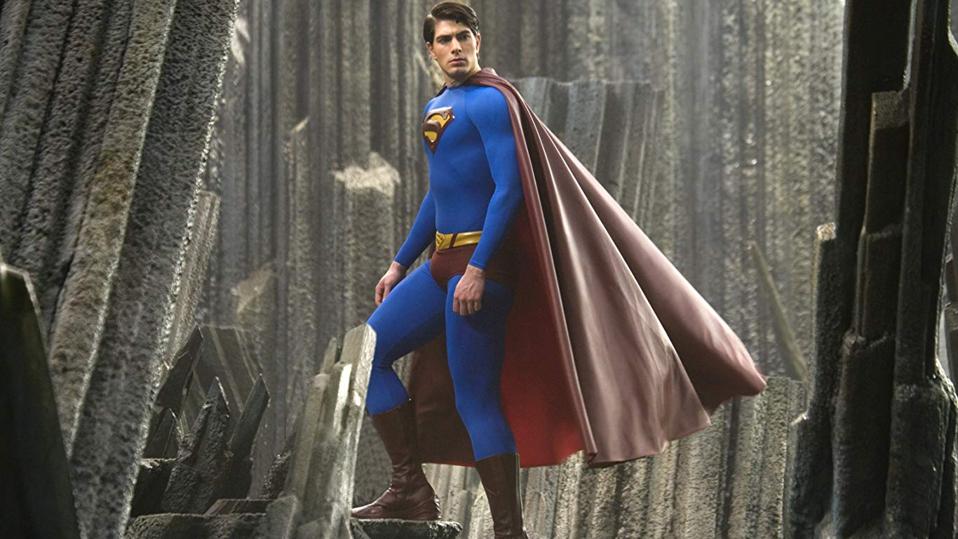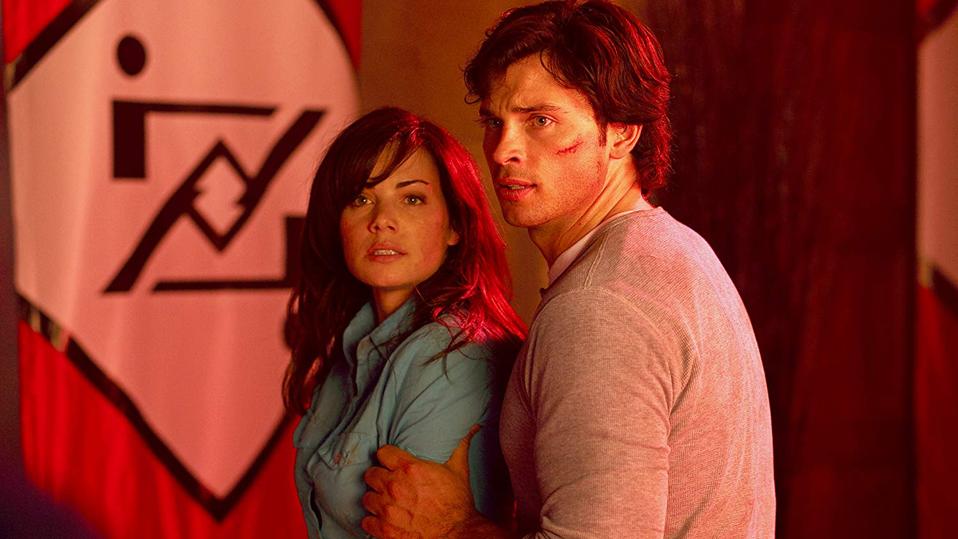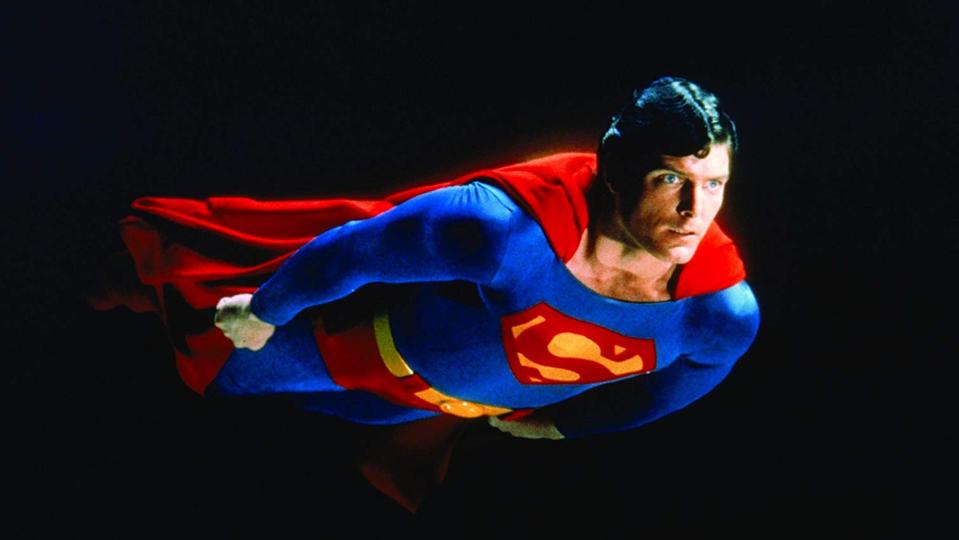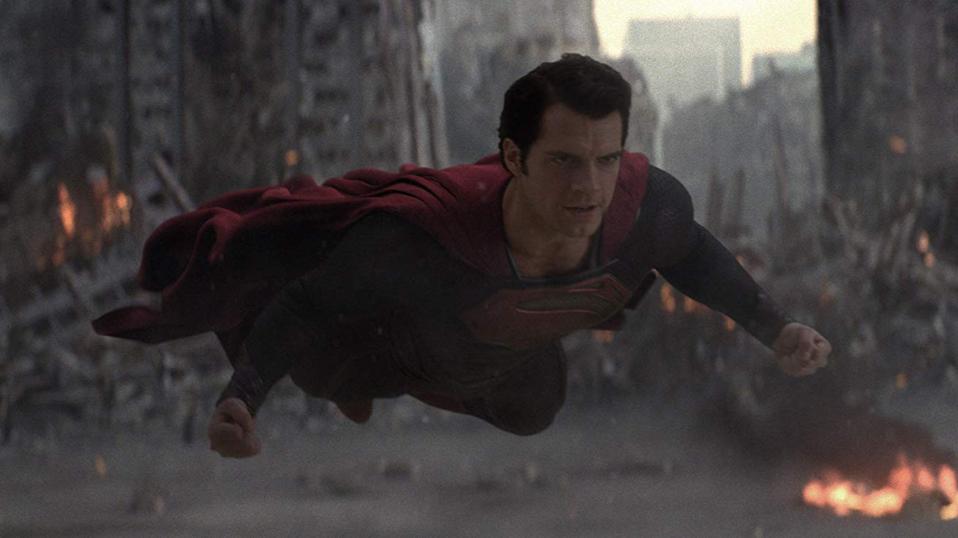Box Office: The Problem With ‘Superman’ Movies Is Still Superman – Forbes

Henry Cavill in Zack Snyder’s ‘Man Of Steel’
Warner Bros. has already tried two diametrically opposed Superman reboots, both with variations of the Captain America model (a serious-minded but heroic Superman dealing with a darker, grimmer real world) to mixed-at-best results.
In another case of folks taking a non-quote in a trade article as “straight from the studio’s mouth” gospel, we’re now having the debate yet again about whether Superman, or specifically Superman movies, can be made “relevant” to modern moviegoers. Yes, there may be artistic value in an aspirational Superman movie which emphasizes “immigrant’s story” over “Moses parable” or “Christ allegory,” but the notion that “do for Superman what Marvel did for Captain America” is some kind of magic bullet is simplistic at best and incorrect at worst. The core issue with Superman movies may be that that domestic moviegoers are far more interested than overseas moviegoers. Moreover, Warner Bros. has already tried two diametrically opposed Superman flicks, both with variations of the Captain America model (a serious but decent Superman dealing with a darker, grimmer real world) to mixed-at-best results.
Bryan Singer’s Superman Returns is a movie with serious tonal issues, a lack of crowd-pleasing action, and a deeply problematic (morally and otherwise) emotional core. We’re supposed to feel bad for Clark Kent (Brandon Routh) because Lois Lane (Kate Bosworth) had the gall to move on with her life after Superman vanished from Earth for five years without so much as a post-it note. That said, it does feature an idealistic and optimistic Man of Steel (Routh makes for a fine Superman even if he’s hobbled by being forced to mimic Christopher Reeve) who relishes the whole “doing good” thing. In terms of comic book superhero movies that don’t fit a conventional formula, it’s in the same realm of “Dammit, I wish this movie worked!” as Ang Lee’s Hulk. Fatal problems notwithstanding, it has its heart on its sleeve and tries to do something different.
Zack Snyder’s Man of Steel has its own issues, namely stakes so high that Clark Kent (Henry Cavill) never really has to make a “choice” about whether to reveal himself as Superman (What’s he going to do, just let the Earth be destroyed?), a sky-high body count in the third-act action climax and a singular dumb decision (having Clark press the button on the spaceship that sends Zod to Earth) that puts all the blood on his hands. Like, ironically, Avengers: Age Of Ultron, it has the main hero almost kill the world with zero consequences. But it has its value as a gorgeous, sprawling, mythical Superman origin story, albeit one that works better as a sci-fi “first contact” fable or a reverse Exodus story (“What if Moses allied himself with the Egyptians when the wrath of God arrived?”) than as an aspirational Superman story.

Brandon Routh in Bryan Singer’s ‘Superman Returns’
Superman Returns opened with $82 million over its Wed-Sun debut in July of 2005, which was a slight disappointment. Superman Returns legged it out and eventually crossed $200 million domestic and $391 million worldwide, essentially tying with the $205 million domestic/$371 million worldwide total of Batman Begins. Alas, word of mouth wasn’t nearly as positive and, thanks to a $270 million budget (some of that due to costs related to prior attempts at rebooting the IP), its global cume was seen as a disaster. Man of Steel opened with a sky-high $128 million in June of 2013 but was frontloaded, earning $291 million domestic and $668 million worldwide on a $225 million budget. It was profitable, but the sequel to the divisive action drama risked falling into the Tomb Raider Trap (where a better sequel stumbles because folks didn’t like the last one).
If Warner Bros. seems flummoxed about what to do with the property, it’s partially because they tried two diametrically opposed variations and struck out both times. Superman Returns was a slow-burn character drama with just enough action to put in the trailers. Man of Steel was a ponderous origin story with a third act that was almost nothing but action, complete with massively scaled action sequences between the Kal El and a handful of exiled Kryptonians that resembled less a conventional superhero movie than a kaiju battle. And, yet, both films had the same financial problem: They were respected without being terribly well-liked, and they both proved more popular in North America than overseas. Man of Steel earned $291 million domestic, which was the biggest-grossing straight-up reboot in North America until Spider-Man: Homecoming ($334 million in 2017). But it earned “only” $377 million overseas.
With all the talk about “making Superman like Chris Evans’ Captain America,” Marvel’s The First Avenger had two distinct advantages over either of the last two solo Superman flicks. First, it was the first big-budget Captain America movie, and it wasn’t competing with a universally beloved prior cinematic incarnation. Second, the Joe Johnston flick, still my pick for the best MCU movie, arrived at a time when $376 million worldwide on a $140 million budget was considered an unquestionable hit. This was before The Avengers changed the math, when a $150 million movie like Batman Begins ($205 million domestic and $371 million worldwide in 2005) or Star Trek ($256 million domestic/$385 million worldwide in 2009) could be a buzzy hit with under $400 million worldwide provided that folks liked it and that it earned much of that money in North America. Speaking of Star Trek…

Tom Welling and Erica Durance in ‘Smallville’
While the $128 million opening weekend of Man of Steel shows that there is a domestic audience that justifies a mega-budget Superman movie, the overseas audience hasn’t (relatively speaking) been up to snuff. Even if Superman is arguably more popular than Tarzan, Peter Pan, King Arthur or Robin Hood, in terms of “just because I’ve heard of him doesn’t mean I want a new mega-budget movie version” IP, the property may be, like Star Trek, one that’s never fated to really go bonkers overseas, unless China’s newfound adoration of solo DC/Marvel movies remains intact. Even Sony’s Spider-Man reboots had to come down in budget (the Amazing Spider-Man movies cost $230 million and $255 million while the MCU reboots cost $170 million and $160 million) before taking flight again. Of course, if you can make both Captain America: The Winter Soldier and Aquaman for $165 million…
Here’s another grim truth: Among the general populace, Superman has never been, as noted a few years ago, that insanely popular, at least not in recent times. Quality notwithstanding, his comics aren’t the biggest sellers and, save for his “death” in 1993, haven’t been for ages. Lois and Clark: The New Adventures of Superman struggled along for four years before being canceled despite ending on a cliffhanger. No matter how much I loved that great first season (it had the best onscreen versions of Lois Lane, Clark Kent, Perry White, and Lex Luthor), the ABC show was never a ratings powerhouse. The often-terrific Superman: The Animated Series was a substantial critical success on Kids WB, yet it survived past the first season partially by being paired with newly created Batman: The Animated Series episodes that aired alongside Superman for the last two years of its run.
The WB’s Smallville, which offered an angsty look at teen Clark Kent’s pre-Superman days, was a big hit for the small network and ran for 10 seasons. Relative to expectations for the WB/CW, it was a reliable ratings warhorse . Without its success, we would not have had Arrow, The Flash, and the rest of the current DC TV mini-boom currently playing out on the CW. Yet, when Smallville debuted in 2001, it was basically the only game in town. It wasn’t one of many (any?) comic book superhero shows on TV, but rather (ten years after The Flash fizzled on CBS) a comparatively pioneering offering. That’s part of what made Richard Donner’s Superman: The Movie such a big deal in 1978. It was the first mega-budget comic book superhero movie and grossed $300 million worldwide. And it still wasn’t the biggest movie of that year.

Christopher Reeve in Richard Donner’s ‘Superman’
It featured pioneering special effects, a then-towering sense of scale and mythological relevance, and a sense of verisimilitude that made it look and feel like something special. It was the first of its kind. It was still was just the third-biggest movie of 1978 behind Grease and Animal House. Its $134 million domestic gross made it the 10th-biggest grossing movie of all time in North America. Superman II, which featured adult romance and a climax where Superman fights off three Kryptonian baddies in downtown Metropolis, made $108 million in 1981. The uber-campy Superman III earned $59 million domestic in 1983 while Superman IV: The Quest for Peace earned just $16 million in 1987. The property has been rebooted twice since then. And both times, we all assumed that a mega-budget Superman movie would rise to the top of the charts because it was a Superman movie.
Warner Bros. may be hesitant about another Superman movie both because they’ve struck out twice and because, at the moment, DC Films is doing just fine without the Last Son of Krypton. They tried twice to give us two very different Superman stories, and yes, warts and all, both featured a Clark Kent/Kal El who was a decent, virtuous and heroic Superman. By the end of both respective reboots, the respective franchises were ready to be the conventional Superman we know and love, which may be part of the problem right there (don’t wait for the sequel to give us what we wanted the first time). Like Marvel’s Hulk, Superman is currently 0/2. There’s no guarantee that a “better” or “more aspirational” Superman movie would become a blockbuster. Even Star Trek Beyond bombed with $158 million domestic and $338 million on a $185 million budget.
After Superman Returns, Man of Steel and Batman v Superman, all of which dabbled in “traditional Superman coping with our grim reality” stories, there’s no guarantee that audiences would think anything other than “Oh, another Superman movie” and shrug their shoulders accordingly. That said, if Birds of Prey, Wonder Woman 1984, The Batman, The Suicide Squad and Black Adam kick respective artistic butt, it’s entirely possible that DC Films could become such a reliable brand that a Superman movie becomes a bigger deal by virtue of being within the current DC Films continuity. The MCU eventually became so dependable that new heroes like Doctor Strange and the Guardians of the Galaxy were big deals partially because they were in the Marvel Cinematic Universe. At this point, I would argue that Superman needs a revitalized DC Films more than DC Films needs a Superman movie.

Henry Cavill in Zack Snyder’s ‘Man of Steel’
With DC Films on a winning streak right now with Aquaman, Shazam, Wonder Woman and Harley Quinn, there is no need (or desire) to rush into what would be the third Superman reboot in a just over a generation. Even a “perfect” Superman movie would still deal with being yet another Superman movie. Moreover, the idealized, Norman Rockwell-ish Americana that Superman essentially invented has long been weaponized for decades as a way to declare other folks as “not real Americans” by the real-world forces of “injustice.” Sure, a Superman movie that emphasizes both the “son of an immigrant created by two poor Jews from Cleveland” component and the “Superman began as a New Deal Democrat who violently battled social injustice” angle, could make for a hell of a movie. But to moviegoing audiences here and abroad, it might just be received as “Oh, another Superman movie?”
Let’s block ads! (Why?)

